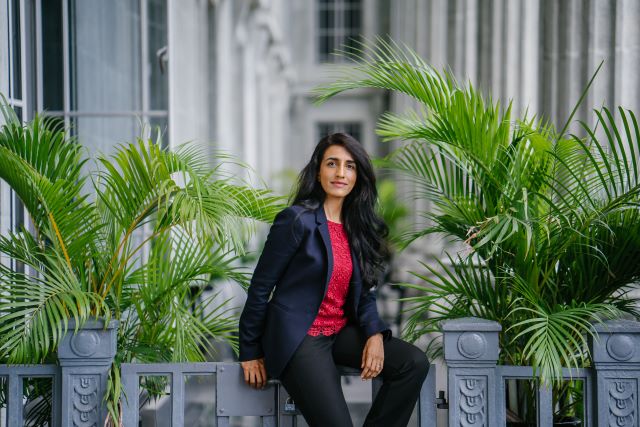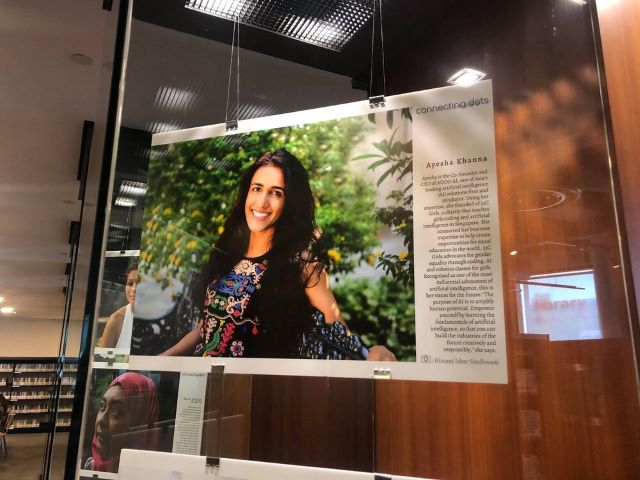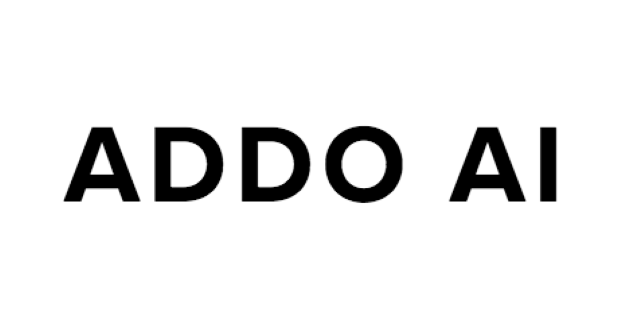

Putting in the time
Dr. Khanna earned her Bachelor of Arts with honours in Economics from Harvard University, Master of Science in Operations Research from Columbia University, and a Ph.D. in Information Systems from London School of Economics. She then spent more than a decade in Wall Street as a software engineer developing large scale trading, risk management and data analytics systems using statistical and quantum models. After Wall Street, Dr. Khanna co-founded Hybrid Reality Institute, a research and advisory group to analyse the social and economic impacts of accelerating technologies.
From Wall Street to groundbreaking
In 2012, Dr. Khanna and her family moved to Singapore and in 2017, she co-founded ADDO AI while also taking on the role as CEO. In the same year, Forbes ranked ADDO AI has one of four leading artificial intelligence companies in Asia that will transform the world, and in the following year, Dr. Khanna was named as one of “Southeast Asia’s Groundbreaking Female Entrepreneurs”. Dr. Khanna serves on the Board of Infocomm Media Development Authority (IMDA), which is Singapore’s government agency that develops and regulates its world-renowned technology sector to drive the country’s digital economy and its Smart Nation vision. She is a member of the World Economic Forum’s Global Future Councils, serves on the Board of Sport Singapore and the Board of Ngee Ann Polytechnic. Dr. Khanna also founded 21C Girls, a charity that provides free coding and AI classes to girls in Singapore.

You are the Co-Founder and CEO of ADDO AI. What is ADDO AI?
Dr. Ayesha Khanna: We provide artificial intelligence (AI) and data strategies to large companies and clients. We help our clients by providing a roadmap on data-driven digital transformation, and then we actually use our data engineering and data architects to build an intelligent platform for our clients. With the platform, our clients can leverage that data and apply different kinds of automation and optimization to their services, processes and operations. We are lucky to have many fantastic clients such as some of the largest telco, financial services and logistics companies in Asia. We are in the fortunate position to have the ability to grow our footprint, not only in various regions but also across sectors. We are also growing in North America in the area of healthcare and life sciences.
What are some countries you have worked with and are there any countries you are looking to work with?
Dr. Ayesha Khanna: Apart from Singapore, we work with Indonesia, the Middle East, Saudi Arabia, Dubai, Pakistan and more recently the United States. Currently, our two areas of focus continue to be in Asia and the US. In Asia, we are looking at more Asian countries to continue expanding our network. Among them, I would love to work with Korea. I love Korea and we are actively looking for partners who can partner with us as we provide cloud-based services to them on artificial intelligence, science, machine learning, engineering, data science and data engineering. However, we really need to pick a few team members or partners in Korea that we can work with.
Can you share your AI journey?
Dr. Ayesha Khanna: I have been working with artificial intelligence since I was an undergraduate, and at that time, I was not able to have an impact because there was not enough computational power. But the first time I encountered neural networks, I was building small algorithms and datasets. Since then, I have worked in Wall Street as a software engineer, implementing statistical or quantum models. With my operations research background, I did a lot of optimization models and such. Since then, AI has really taken off with the massive data availability and the computational power on the cloud that makes it easier to mine huge amounts of data. We are now able to have lots of data and the ability to analyze it so that techniques like deep learning can do things like automatically reply in emails or identify issues with computer vision in a manufacturing or factory production line for an earlier intervention to fix the problem before it costs a lot of money. So, this is really the golden era of that kind of machine learning.
What brought you to Singapore?
Dr. Ayesha Khanna: After I had completed my Ph.D. in Smart Cities in London, I wanted to write my thesis. So, my husband and I thought of going to Singapore because he had visited often, we did not want to go back to New York, and we wanted to try Asia because of its huge growth opportunities. We came and thought, “This is the place,” especially with more and more people entering the middle-class, meaning that there will be more interesting digital services that will be needed and provided by them. And Singapore was right in the center, as a hub for us to explore, travel to and around Asia, and it has not failed us. Singapore is a wonderful place. I am not a Singaporean citizen and I absolutely love it here. It is a safe and good environment for our kids as well.
You have worked with smart cities such as Singapore and Dubai. What were some of the challenges and how did they overcome those challenges?
Dr. Ayesha Khanna: There are a couple of challenges. The number one is talent. The number one thing you need is to hire talent as a government, and traditionally, governments have not hired digital-related talents well. One of the great things Singapore did to address this was setting up an agency called ‘GovTech’ (Government Technology Agency), which actually takes care of all of the different digital needs of various agencies. Singapore also offered small businesses the ability to digitally transform. Governments do not only need to be savvy, but all businesses need to be that way too. INFOCOMM Media Development (IMDA) developed CTOaaS (Chief Technology Officer-as-a-service) where you can get subsidized CTO health. The Singapore government has been very encouraging in adopting AI-based and cloud-based tools while offering subsidies for companies too. So, the first thing is, where is your talent? There are subsidized trainings and internships. Are you developing the talent or is somebody helping you do it?
The second thing is mindset change, which is very important because the competitive pressure is big. This is to normalize data-driven digital transformation so that it is not intimidating for people whether it is students, young people, executives or small-medium enterprises (SMEs). Singapore did this by having lots of pilot projects. Whether it is in the media or the news, there were constant conversations about the pilot projects, and there is a great public-private partnership. So, it is not a top-down but a bottom-up (reciprocal) approach as well. Large enterprises and the government came together to make initiatives like the ‘Common Data Infrastructure’ regarding data exchanges for commodity traders. There are 19 big businesses including one of the largest energy commodity traders, Asian banks and the government.
The third thing is having a citizen-centric approach. Regardless of whom it is, how it is being done and in what area, there is a system with regulations and AI guidelines to build trust about what is being done. Trust and communication are very important. Singapore, like all other countries, is still learning but it is actively trying to incorporate this so that people are constantly being made cognizant about what is happening, so the people understand its value, debate its challenges, and also have governance in place.
Busan is South Korea’s maritime capital and the first national smart city pilot, a project called “Eco-Delta Smart City”. What advices can you give Busan and South Korea as they are undergoing the smart city and digital transformation process?
Dr. Ayesha Khanna: There are a couple of things to keep in mind. What is the business or citizen problem you are trying to solve? Just throwing in a lot of technology without really tailoring it to the particular needs of that city, country or culture is not going to help. For example, if you were building a smart building, you need to think about the demographics. Is it an aging, young or mixed population? Each need should be accounted for and respected. In Singapore, the housing development boards are not only making smart rooms for the elderly, but they are also redesigning public housing so that there are access and more mingling of different generations. It is about the goals of the citizens or creating a harmonious society, and then working backwards to find the engineering parts to do that.
Another thing is that regardless of the technology, data is essential. Data has to be in a coherent format and governed well. Once you have the “golden source of truth”, you can continue to build on it and change the inputs to it with the different public-private partnerships. Outputs can be changed too; people can access it through sensors, transport systems or even an app by citizens.
The last thing is the challenge of persuading people that it makes sense. Some people are more open to it than others. When Boston Dynamics’ robot dog was deployed in Singapore’s parks, it was okay. When it was deployed in New York, there was uproar. I think part of it was that it wasn’t communicated properly to the people. There was a lot of suspicion on what the police was using it for. So, it is important to make the people feel included in the journey. You have to educate and show them the pilot projects and testing, that you have the right governance and regulations to make sure the data and technologies are not being sold or used by anyone against the benefit of the citizens in the city.
With limited resources, global climate and urbanization, do you think smart cities are the answers, especially towards sustainability?
Dr. Ayesha Khanna: I absolutely think that smart cities are necessary. It is the only want to reduce our carbon footprint, optimize supply chains and make cities more resilient to crises like pandemics. There is no other way for us. We cannot keep doing business as usual. We now need to figure out a way to get food to people. In Singapore, we import most of our food, but we have a plan called “30 by 2030”, which is to have 30 percent of our food grown domestically. The way we do that is through vertical farming, using artificial intelligence and IoT (Internet of Things), having high-tech greenhouses and foodtech companies. Singapore also has green projects that focus on energy and waste management, especially in buildings and transportation. Ultimately, it is about the quality of life or as our prime minster said, “It is about whether human spirit flourishes. That is really what a smart nation is.”
What words of advice do you have for our audience?
Dr. Ayesha Khanna: It is super important to understand the basics of AI, regardless of your background whether you are a rockstar, Kpop star, fashion designer, lawyer or journalist. You can put on a Google alert for ‘AI +’ music, movies, food or whatever you like. Just skim through the Google alert and learn what AI truly is. There is no industry that can escape being impacted or disrupted by AI. So, what you want to do is to be ready and excited for it, and say “I am going to use it for me”, instead of waiting for AI to disrupt you. It is simple and there are other ways to get comfortable learning AI and getting into the flow of it. And very soon, you will find that you are endlessly marketable as a result.
What is your soul food?
Dr. Ayesha Khanna: A salted caramel brownie from a neighborhood café. It is the same brownie I get every time I need a pick-me-up or celebrating something. I just had it yesterday. I never get tired of it!
What superhero power do you want the most and what superhero name would you give yourself?
Dr. Ayesha Khanna: The power to fly and fly fast. I love to travel and meet my clients, but I am also a mom, so I do not like being away from my kids a lot. I would love to travel like the US within 15 minutes, meet my clients, and still be home for dinner. As a working mom, and I think all moms can relate to me, I always want to be great at my job and be there for my kids. My superhero name would be Zippydee Zip.
About ADDO AI
ADDO AI is an AI solutions firm that uses data and AI to power digital transformation for their clients. For more information, please visit https://www.addo.ai/.
